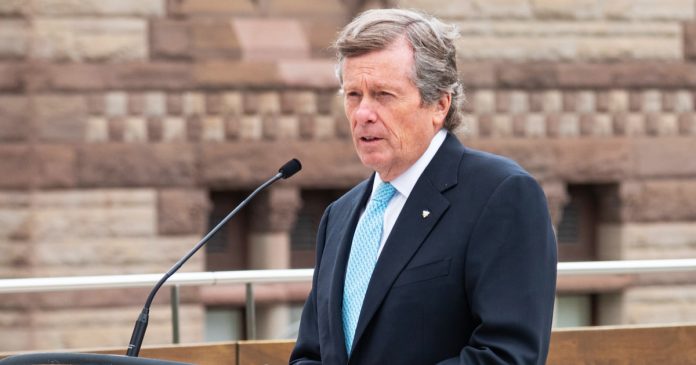The single-minded officials in charge of combatting black racism at the city of Toronto have used the pandemic as an excuse to put together a special food plan for the city’s black families.
The Toronto Black Food Sovereignty plan, recently adopted unanimously by council despite having no budget attached to it, seeks to increase access to “healthy, affordable and culturally appropriate food” for Toronto’s black communities.
The plan was developed by the city’s anti-black racism unit — staffed largely with black activists — which is operating this year with a $1.5-million-plus budget.
It includes a pile of actions to ensure black residents have access to safe and nutritious food they allegedly don’t have now. This plan includes giving public money to black groups to create an annual black food sovereignty conference, funding urban agriculture for black communities, black food businesses, black entrepreneurs and black food markets and providing free city space for black-serving farmers markets.
This whole plan makes me wonder whether the city of Toronto’s motto is still “diversity our strength.”
If so much time and money are being directed to black-only food and farmers’ markets, is that not discrimination against white and other minority residents?
A city spokesman says the money will flow in 2022 when various city divisions start implementing the plan. Like so many other similar projects approved by council in the past few years under the watch of Mayor John Tory, money seems to be no object when it comes to appearing “woke.”
The rationale for the plan, according to an 18-page report replete with wokespeak, is that more than 30% of black children live in “food insecure households” which has put them at greater risk of contracting COVID-19.
The city’s own statistics, however. Which were compiled to May of this year show that south Asian, southeast Asian and Latin American communities have had a higher rate of COVID cases than members of Toronto’s black community.
The report claims that neighbourhoods with higher black populations in Toronto have “inadequate access” to grocery stores and blacks in Toronto lack the ability to secure “culturally appropriate” food.
The report also alleges there is “excessive policing” in grocery stores in low-income neighbourhoods with a greater concentration of black residents.
Asked in what neighbourhoods police hang out in grocery stores, the city spokesman named Weston, Mount Dennis, Black Creek, Rexdale, Jane and Finch, Regent Park, Riverdale, St. James Town and in east Scarborough.
The spokesman noted these neighbourhoods are also where food stores stock poor quality produce.
I have no way of knowing whether grocery stores stock substandard produce in these areas as I don’t shop there. But given the limited police resources throughout the city to handle the most basic of crimes, I highly doubt that officers have been assigned to watch black residents at supermarkets.
I suspect if police frequent certain areas like St. James Town, Rexdale or Jane and Finch, it’s because there are frequent shootings in these areas, not because they’re worried about what black residents do in their local grocery stores.
The report’s authors — there were four in total (one lists herself as an ancient wisdom teacher and spiritual liberation activist in addition to being a director at the city) — also maintain that “legacies of colonialism and vestiges of institutional anti-black racism” have prevented black community members from having access to parks, community gardens and the city’s trees.
If the report’s assumptions and proposals aren’t suspect enough, officials with the city’s anti-black racism unit began their recent presentation by trying to out-woke their Indigenous colleagues.
They did so by giving land acknowledgements not just to native tribes but to “ancestors of African origin and descent.
“(The anti-black racism unit) acknowledges we are all Treaty peoples including those who came here as settlers,” the presenters said.”(We acknowledge those) brought to these lands as a result of the Trans-Atlantic Slave Trade and Slavery.”
It should come as no surprise that there was unquestioning buy-in from Mayor Tory and council, who in their desperation to pander to the vocal minority and prove they’re not racist, have themselves created divisiveness in this city and a culture of haves and have-nots.
It is also terrifying to think that none of these proposals were even costed out, suggesting councillors and the mayor are so intent on appearing “woke” they don’t care the least bit about demanding accountability.






















